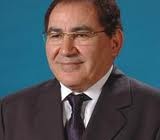Opposition leaders in the kingdom are calling on the governing majority to accelerate democratic reforms.
By Naoufel Cherkaoui for Magharebia in Rabat
![[Naoufel Cherkaoui] Members of Morocco's opposition meet with foreign ambassadors to discuss their role under the country's new constitution.](http://www.magharebia.com/cocoon/awi/images/2013/02/24/130224Feature1Photo1.jpg) [Naoufel Cherkaoui] Members of Morocco’s opposition meet with foreign ambassadors to discuss their role under the country’s new constitution
[Naoufel Cherkaoui] Members of Morocco’s opposition meet with foreign ambassadors to discuss their role under the country’s new constitution
Moroccan opposition figures recently met in Rabat to discuss their role in finalising the democratic changes in the new constitution.
The Authenticity and Modernity (PAM) party, the National Rally of Independents (RNI), the Socialist Union of Popular Forces (USFP) and the Constitutional Union (UC) participated in the February 15th meeting, which was attended by some forty foreign ambassadors.
“If it is a commonly accepted political practice to hold the government to account for its policy during its tenure, don’t we have a right to hold the opposition as well to account for its work?” event organiser Abdelali Habek asked.
“Our goal is not to hold the opposition to account politically, as much as to give it a chance to show its position from the work of the ruling majority and from its own work,” he said at the Diplomatic Club conference.
The USFP’s Driss Lachguer noted that even though Morocco had allowed opposition parties since independence, “such opposition was denied its rights under the previous constitutions”.
“Then came the 2011 constitution to correct that,” Lachguer said. It gives “the right of freedom of expression, affiliation, protest and demonstration to every citizen”, he added.
Despite the changes, the opposition still faces hindrances, the politician said.
“The internal rules that govern relations between the different mechanisms of parliamentary institutions are usually issued with consensus between the majority and opposition,” he told the forum.
The current majority, however, “was keen on internal rules which don’t activate the reforms set out under the new constitution”, he added.
“These reforms could have brought Moroccans to a legislative institution in which there is real dialogue reflecting what’s happening in society, instead of making demonstrators stage violent protests to demand their rights,” Lachguer said.
Other opposition leaders hailed the constitutional reforms.
“The new constitution has consolidated the principle of constitutional privilege of the opposition,” said PAM Secretary-General Mustapha Bakkoury.
In his turn, RNI political bureau member Abdelaziz Alaoui Hafidi said that the new constitution had built democracy on the concept of participation.
“We believe that the majority shouldn’t deal with us as opposition in terms of numbers; otherwise there would only be consultative, not participatory, democracy, and the work of opposition and government wouldn’t be constructive.”
“Therefore, the provisions which activate that constitution must be done at the same way,” al- Alaoui Hafidi said.
All in all, opposition parties are better off than before the constitutional reforms, said Mohamed Tamaldou, a member of the UC political bureau.
The opposition’s “powers have become clearer, and now it has the role of an actual participant in control and legislation”, he said.
.




